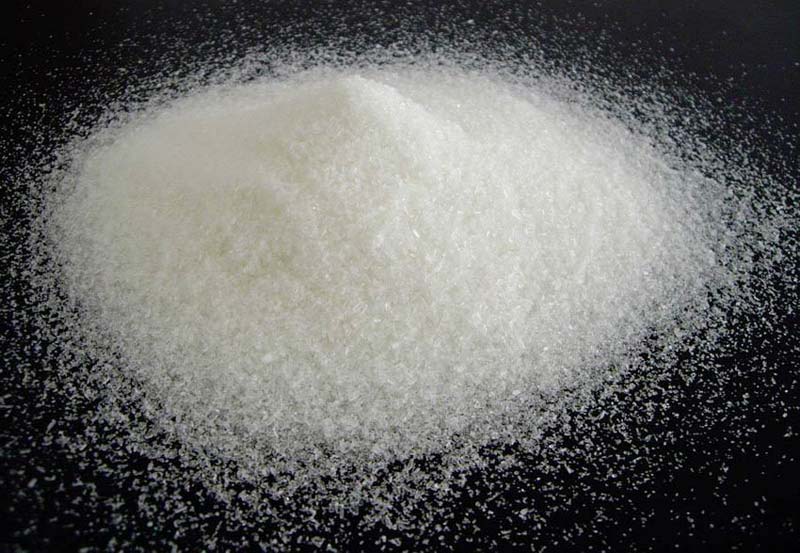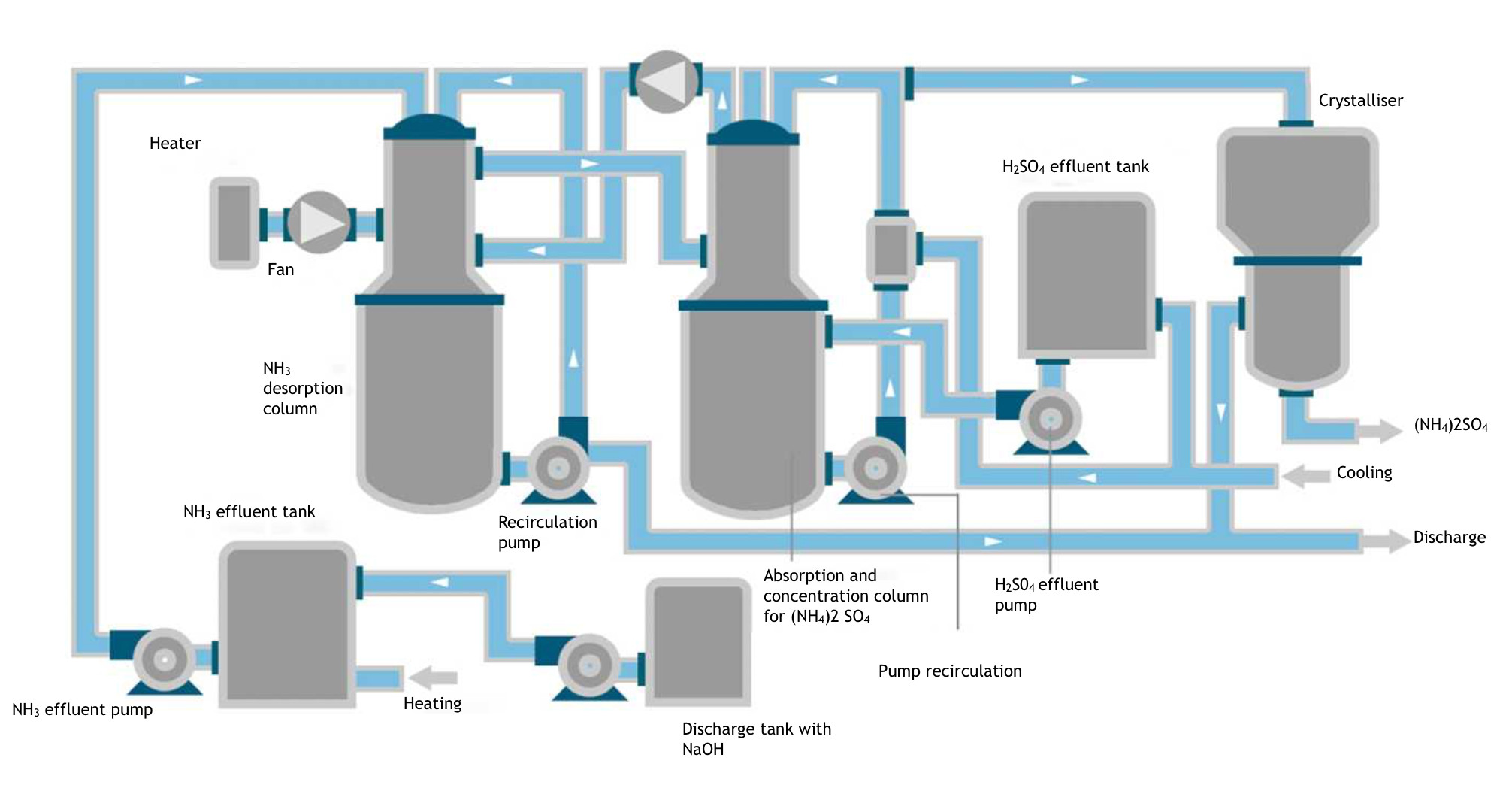Description of Ammonium sulfate:
Ammonium sulfate is an inorganic sulfate salt obtained by reaction of sulfuric acid with two equivalents of ammonia. In the process, a mixture of ammonia gas and water vapor is introduced into a reactor that contains a saturated solution of ammonium sulfate and about 2%–4% (v/v) of free sulfuric acid at 60°C (140°F); the heat of the reaction maintains the desired temperature.
Concentrated sulfuric acid is added to keep the solution acidic and to retain its level of free acid. Dry, powdered ammonium sulfate may be formed by spraying sulfuric acid into a reaction chamber filled with ammonia gas. The heat of reaction evaporates all of the water present in the system with the resulting formation of as dry powdery salt.
Ammonium sulfate (sometimes abbreviated as AS or AMS) has been produced for more than 150 years. Initially, it was made from ammonia released during manufacturing coal gas (used to illuminate cities) or from coal coke used to produce steel.
Ammonium sulfate is a white odorless solid. Sinks and dissolves in water
Ammonium sulfate is produced by three different processes:
(1) synthetic manufacture from pure ammonia and concentrated sulfuric acid,
(2) as a coke oven by-product,
(3) from ammonia scrubbing of tail gas at sulfuric acid (H2SO4) plants, and
(4) as a by-product of caprolactam ((CH2)5COHN) production.
The most important Application:
Fertilizer: The primary use of Ammonium Sulfate is as a fertilizer for alkaline soils. In the soil the ammonium ion is released and forms a small amount of acid, lowering the pH balance of the soil, while contributing essential nitrogen for plant growth.
Food Additives | Acid Regulator :As a food additive, Ammonium Sulfate is considered generally recognized as safe (GRAS) by the U.S. Food and Drug Administration, and in the European Union it is designated by the E number E517. It is used as an acidity regulator in flours and breads.
Treatment of drinking water : In the treatment of drinking water, Ammonium Sulfate is used in combination with chlorine to generate monochloramine for disinfection.
Uses:
. flame-proofing of paper, wood and textile equipment
. additive for the chipboard industry
. for the pulp industry
. additive for the insulation materials industry
. decalcified in the leather goods industry
. nitrate supplier for yeast cultures and microorganisms
. additive for fire extinguishing agents
. additive for fertilizer
. laboratory chemical
. pH regulator
. intermediate for syntheses
. additional use: insecticides, herbicides, fungicides
uses include applications as: cattle feed; in cellulose insulation; in the chemical industry (for the production of persulfates); for the production of fire extinguisher powder and flame proofing agents; in the production of metals (e.g. chromium), and noble metals (e.g. gold), and as a flotation auxiliary in the treatment of ores; the woodworking industry for the production of curing agents for urea-formaldehyde and melamine-formaldehyde resins used in the manufacture of chipboard; the pharmaceutical industry as a nutrient for microorganisms; textile industry as an additive to dye baths, wadding and wicks, and in the production of auxiliaries for textiles processing; wood pulp industry in the production of yeast and sulfite liquor.
Further uses reported in the literature include in shale stabilization and drilling fluids, and for analytical purposes. It is also used in the manufacturing of ammonia alum, and hydrogen sulfide, wash- and cleaning agents and disinfectants.
Handling and Storage
Keep in a tightly closed container, stored in a cool, dry, ventilated area. Protect against physical damage. Isolate from incompatible substances. Containers of this material may be hazardous when empty since they retain product residues (dust, solids); observe all warnings and precautions listed for the product.
Transport & Packaging
Ammonium sulphate for technical applications is solely supplied in small packaging of different sizes. It can be packaged in various items: 25 kg bags, 50 kg bags and in 1000 kg big bags.
Specification of Ammonium Sulphate industrial grade
| Parameter | Standard | Limiting value | Method |
|---|---|---|---|
| Ammonium sulphate | Ma.-% | min. 99.00 | 84-512 |
| Ammonium nitrogen content | Ma.-% | min. 21.00 | 84-512 |
| Water content | Ma.-% | max. 0.2 | 84-503 |
| Particle size 0.4 – 1.6 mm | Ma.-% | min. 90 | 84-539 |
| Content of conditioning | Ma.-% | max. 0.05 | 84-50 |
Specification of Ammonium Sulphate special grade
| Parameter | Standard | Limiting value | Method |
|---|---|---|---|
| Ammonium sulphate | Ma.-% | min. 99.00 | 84-512 |
| Ammonium nitrogen content | Ma.-% | min. 21.00 | 84-512 |
| Water content | Ma.-% | max. 0.2 | 84-503 |
| Particle size 0.4 - 1.6 mm | Ma.-% | min. 90 | 84-539 |



